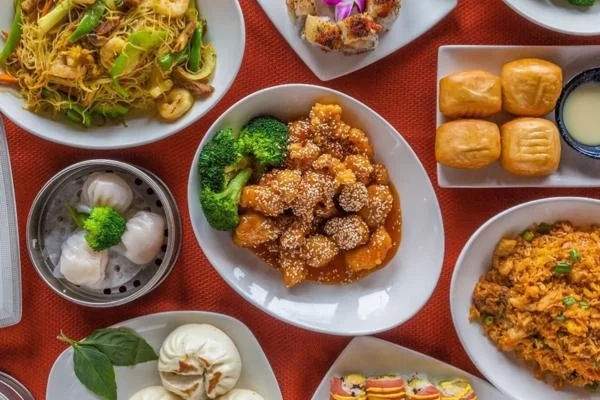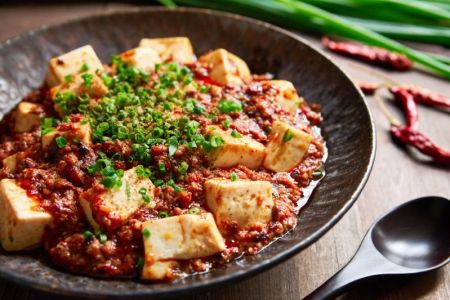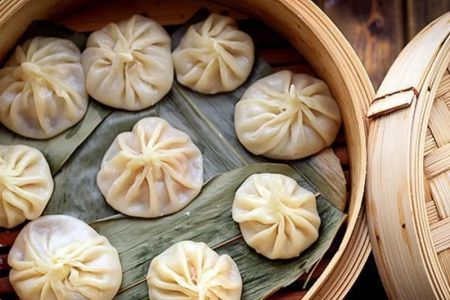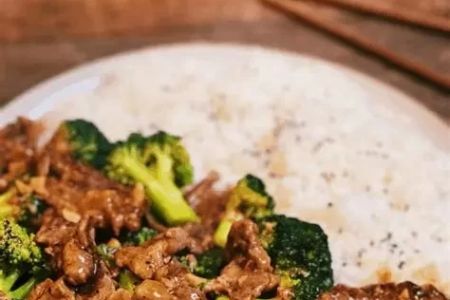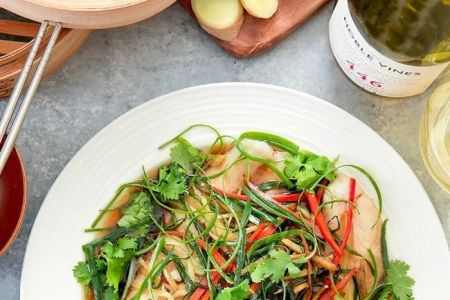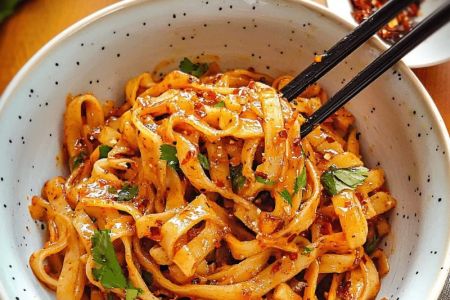- Importance of Allergen Information in Chinese Food Menus in the USA
- Common Food Allergens in Chinese Cuisine and Their Presentation
- Challenges in Providing Allergen Information at Chinese Restaurants
- Real-Life Examples and Restaurant Responses to Allergen Concerns
- Tips for Managing Food Allergies When Eating Chinese Food in the USA
- How Chinese Food Can Be Enjoyed Safely with Allergen Awareness
1. Importance of Allergen Information in Chinese Food Menus in the USA
In the United States, awareness about food allergies has significantly increased in recent years, and this has impacted the restaurant industry broadly. Chinese cuisine, beloved by many, presents unique challenges and opportunities when it comes to allergen information on menus. Understanding Chinese food allergen info on menus in the USA is crucial not only for diners with allergies but also for restaurant owners who want to ensure a safe dining experience. Clear allergen information helps customers make informed decisions, reduces the risk of allergic reactions, and builds trust between restaurants and their patrons.
Due to the diverse ingredients and cooking styles in Chinese food, allergens like peanuts, soy, shellfish, and wheat can be common but may not always be obvious in dishes. Therefore, menus that provide transparent allergen details help bridge the gap between culinary enjoyment and safety. It’s becoming increasingly standard for US restaurants, including Chinese establishments, to comply with labeling regulations and voluntarily provide allergen guidance.
1.1 The Growing Need for Transparency in Allergen Information
With food allergies affecting an estimated 32 million Americans, including children, the demand for transparent allergen information is no longer a niche concern. Chinese restaurants across the USA are recognizing this trend and adapting their menus accordingly. Offering detailed allergen info helps restaurants avoid potential legal issues and, more importantly, protects the health of their customers.
2. Common Food Allergens in Chinese Cuisine and Their Presentation
Chinese cuisine uses a wide variety of ingredients, many of which are common allergens. The most prevalent allergens found in Chinese food include:
2.1 Soy and Soy-Based Products
Soy sauce is a staple ingredient in Chinese cooking, and soybeans themselves are often present in tofu, soy milk, and other forms. Many dishes that appear safe may contain soy derivatives, which can be problematic for soy-allergic individuals.
2.2 Peanuts and Tree Nuts
Peanuts are frequently used in sauces or as garnishes, especially in popular dishes like Kung Pao Chicken. Tree nuts, such as cashews, also appear in certain stir-fry dishes. Cross-contact in kitchens can increase the risk of exposure.
2.3 Shellfish and Fish
Dishes featuring shrimp, crab, and fish sauce are common and often come with no explicit allergen labeling. This poses a significant risk for shellfish-allergic customers.
2.4 Wheat and Gluten
Wheat is present in many noodles, dumplings, and soy sauce variants. For those with gluten intolerance or celiac disease, identifying wheat-containing dishes is critical.
2.5 Eggs and Sesame Seeds
Eggs are often used in fried rice and some soups, while sesame oil and seeds are common flavor enhancers, which can trigger allergies in sensitive individuals.
3. Challenges in Providing Allergen Information at Chinese Restaurants
Despite growing awareness, many Chinese restaurants in the USA face obstacles in providing clear allergen information:
3.1 Complex Recipes and Ingredient Variations
Many traditional Chinese dishes have recipes that vary widely between regions and chefs, making standardized allergen labeling difficult. Ingredients can differ not only by recipe but also by supplier, leading to unpredictable allergen presence.
3.2 Cross-Contamination Risks in Busy Kitchens
Chinese kitchens often use shared cooking surfaces and utensils, increasing the risk of cross-contamination. This can be dangerous for people with severe allergies, as even trace amounts can trigger reactions.
3.3 Language and Cultural Barriers
Some restaurant owners or staff may face language challenges in clearly communicating allergen information, or they may underestimate the severity of allergies due to cultural differences in food preparation and allergy awareness.
4. Real-Life Examples and Restaurant Responses to Allergen Concerns
Several well-documented incidents highlight the importance of allergen information in Chinese food establishments in the USA. For example, a notable case involved a customer with a peanut allergy who suffered a severe reaction after eating Kung Pao Chicken at a local Chinese restaurant where peanut presence was not disclosed. This incident sparked community discussions and led the restaurant to update their menus with clear allergen labels.
On the positive side, some Chinese restaurants have embraced allergen transparency proactively. They provide menus clearly marking common allergens or offer allergen guides on request. Some even train their staff specifically to handle allergen inquiries and prepare meals accordingly.
These efforts demonstrate that with the right approach, Chinese food allergen info on menus in the USA can be effectively communicated, improving safety and customer satisfaction.
5. Tips for Managing Food Allergies When Eating Chinese Food in the USA
For diners with food allergies who want to enjoy Chinese cuisine safely, the following practical tips can help:
5.1 Always Inform the Restaurant Staff
Clearly communicate your allergy to the server and ask if they can accommodate your needs. Some restaurants may be able to prepare a special dish free of the allergen or suggest safe menu options.
5.2 Research and Choose Allergy-Friendly Restaurants
Use online reviews and resources to identify Chinese restaurants known for allergen awareness and safe food handling. Our website, Chinese Food, offers curated recommendations to help you find suitable establishments and products.
5.3 Ask About Ingredient Substitutions and Cooking Methods
Inquire whether dishes can be modified to avoid allergens and whether cross-contact is prevented in the kitchen.
5.4 Carry Emergency Medication
Always have your allergy medications, such as antihistamines or epinephrine, on hand when dining out, just in case.
6. How Chinese Food Can Be Enjoyed Safely with Allergen Awareness
Chinese cuisine’s rich flavors and diverse ingredients need not be off-limits to allergy sufferers. By increasing allergen transparency on menus and improving communication between diners and restaurant staff, safe and enjoyable dining experiences can be achieved. When restaurants commit to clear Chinese food allergen info on menus in the USA, they not only protect their customers but also enhance their reputation and loyalty.
If you are looking for trusted information, allergy-conscious restaurant listings, or specialty products related to Chinese food, visiting Chinese Food can provide valuable resources tailored to your needs. Whether you are allergic yourself or supporting someone who is, staying informed and cautious will allow you to savor authentic Chinese flavors without worry.


